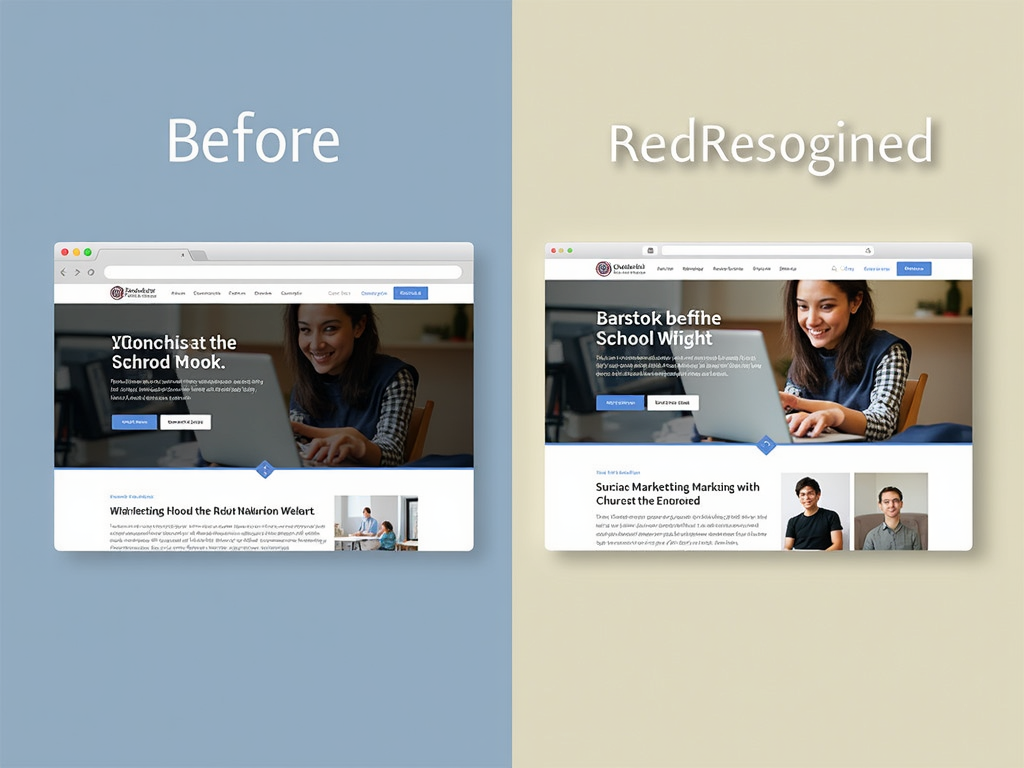Success Stories: Skill-Based Volunteering in Action
By , July 2, 2025
Overview
Skill-based volunteering is more than just a trend—it's a powerful way for professionals to give back by using their unique skills to support causes they care about. In education, this approach is transforming how schools operate, helping them overcome challenges and improve outcomes for students. From marketing experts redesigning school websites to engineers leading STEM workshops, skill-based volunteering is making a real difference. This article dives into inspiring success stories, explores why this trend is growing, and offers practical advice for professionals who want to get involved.
What Is Skill-Based Volunteering?
Skill-based volunteering involves professionals donating their specific expertise to help organizations, rather than just their time or money. In education, this can mean anything from a graphic designer creating educational materials to a financial analyst helping a school manage its budget. Unlike traditional volunteering, which might involve tasks like cleaning or organizing, skill-based volunteering leverages a person's professional abilities to create lasting impact.
This approach is gaining popularity because it benefits both the volunteer and the organization. Volunteers get to use their skills in meaningful ways, often gaining new perspectives and experiences, while schools and nonprofits receive expert help they might not otherwise afford.

Why Skill-Based Volunteering Is an Emerging Trend
The rise of skill-based volunteering is driven by several factors. First, professionals today are looking for ways to make a difference that go beyond writing a check. They want to use their talents to create change. Second, schools and nonprofits are facing increasing pressure to do more with less, making expert help invaluable. Finally, technology has made it easier than ever to connect volunteers with opportunities that match their skills.
According to a report from the National Council of Nonprofits, skill-based volunteering is one of the fastest-growing trends in the nonprofit sector. This trend is expected to continue as more professionals seek purpose-driven work and organizations recognize the value of specialized expertise.
Success Story 1: Marketing Magic for a Local School
Take the story of Sarah, a marketing professional who volunteered her skills at a local elementary school. The school had a outdated website that was hard to navigate and didn't effectively communicate with parents or the community. Sarah stepped in, using her expertise to redesign the website, making it user-friendly and visually appealing. She also trained the school's staff on how to maintain it.
The result? The school saw a 30% increase in parent engagement and a significant boost in community support. Sarah's work didn't just improve the website—it strengthened the school's connection with its community.

Success Story 2: Engineering a Brighter Future
Another inspiring example comes from Mark, an engineer who volunteered to lead a STEM workshop at a high school in an underserved area. Mark designed hands-on activities that introduced students to engineering concepts, sparking their interest in the field. He also mentored students, helping them prepare for college and careers in STEM.
Thanks to Mark's efforts, several students went on to pursue engineering degrees, and the school established a permanent STEM club. Mark's volunteering didn't just teach skills—it opened doors for students who might not have otherwise considered a career in engineering.
How Professionals Can Impact Schools Beyond Teaching
Skill-based volunteering offers countless ways for professionals to contribute to education without stepping into a traditional teaching role. Here are just a few examples:
- Marketing and Communications: Help schools improve their outreach, from social media to newsletters.
- Finance and Accounting: Assist with budgeting, financial planning, or grant writing.
- IT and Technology: Upgrade school technology, from setting up networks to teaching coding.
- Human Resources: Support staff recruitment, training, or policy development.
- Legal Services: Offer guidance on contracts, compliance, or other legal matters.
The possibilities are endless, and the impact can be profound. By sharing their expertise, professionals can help schools operate more efficiently, reach more students, and create better learning environments.

| Skill | Application | Impact |
|---|---|---|
| Marketing | Redesign school website | Increased parent and community engagement |
| Engineering | Lead STEM workshops | Inspired students to pursue STEM careers |
| Finance | Assist with budgeting | Improved financial management |
| IT | Upgrade school technology | Enhanced learning tools and resources |
| Human Resources | Support staff training | Better-prepared and motivated staff |
Getting Started with Skill-Based Volunteering in Education
If you're a professional looking to make a difference, skill-based volunteering in education is a great place to start. Here's how you can get involved:
- Identify Your Skills: Think about what you do best and how it could benefit a school or educational nonprofit.
- Find Opportunities: Look for organizations that match your skills with their needs. Websites like Catchafire and Taproot Foundation are great resources.
- Reach Out: Contact local schools or nonprofits directly to offer your services.
- Start Small: Begin with a small project to test the waters and build relationships.
- Measure Impact: Track the results of your work to see the difference you're making.
Remember, even a few hours of your time can have a lasting impact. Whether you're helping a school improve its operations or inspiring students to pursue new paths, your skills can change lives.

The Benefits of Skill-Based Volunteering
Skill-based volunteering isn't just good for schools—it's good for volunteers too. Here are some of the benefits:
- Personal Fulfillment: Using your skills to help others can be deeply rewarding.
- Professional Development: Volunteering can help you develop new skills or refine existing ones.
- Networking: You'll meet like-minded professionals and expand your network.
- Resume Boost: Volunteering can make your resume stand out, showing your commitment to social impact.
- Community Connection: You'll build stronger ties with your local community.
In fact, a study by Deloitte found that 82% of hiring managers are more likely to choose a candidate with volunteering experience. So, while you're making a difference, you're also investing in your own future.
Challenges and How to Overcome Them
While skill-based volunteering is incredibly rewarding, it's not without its challenges. Here are some common obstacles and how to overcome them:
- Time Constraints: Professionals are busy, but even small commitments can make a big difference. Start with a project that fits your schedule.
- Finding the Right Fit: It can be tough to find opportunities that match your skills. Use platforms like Catchafire or reach out to local organizations directly.
- Measuring Impact: It can be hard to see the immediate results of your work. Focus on long-term goals and celebrate small wins along the way.
By being proactive and flexible, you can overcome these challenges and make a meaningful contribution.

Conclusion
Skill-based volunteering is a win-win for professionals and schools alike. By sharing their expertise, volunteers can help schools overcome challenges, improve operations, and inspire students. Whether you're a marketer, engineer, or financial analyst, your skills can make a lasting impact. So, why not take the first step today? Explore opportunities, reach out to local schools, and start making a difference. Your skills are needed, and the rewards are immeasurable.